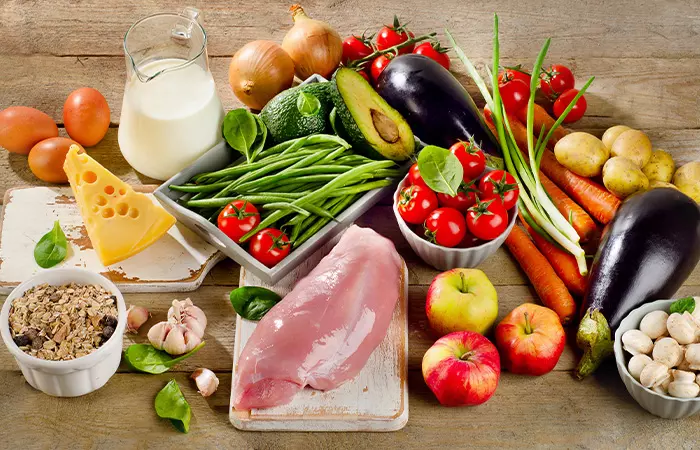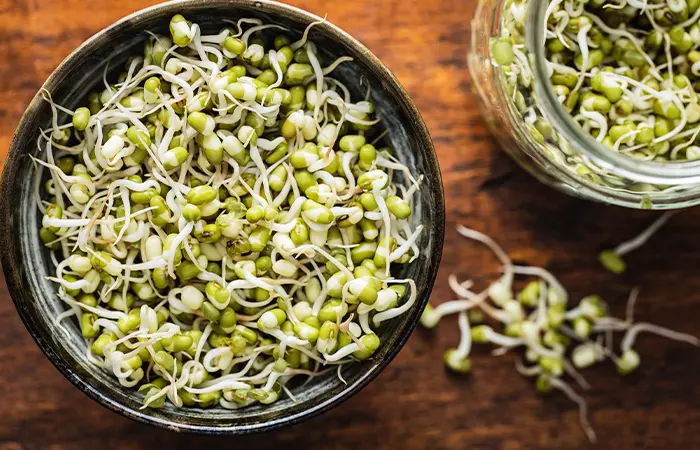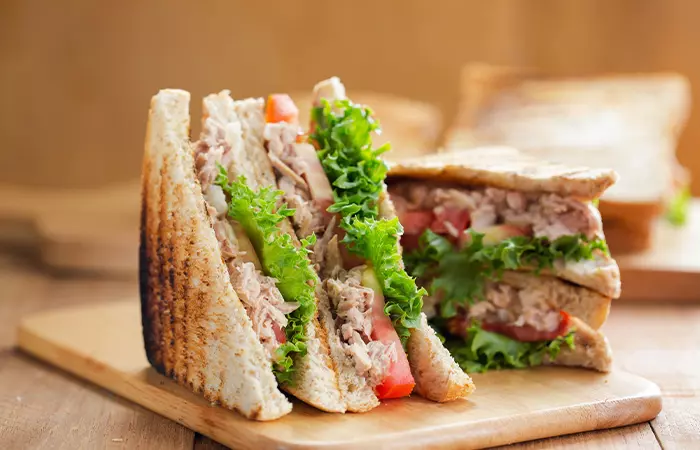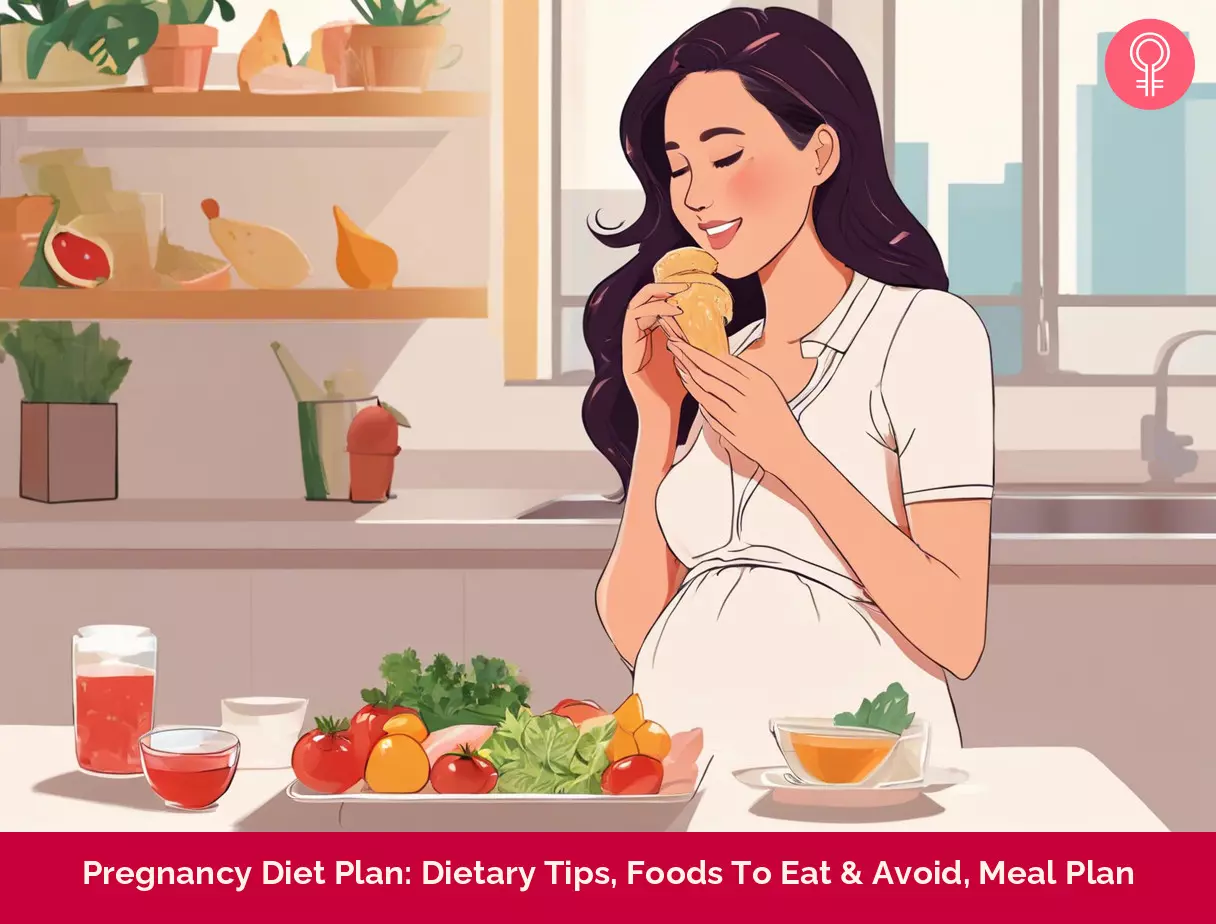What Is A Pregnancy Diet?
A pregnancy diet is a specialized dietary plan that is designed to cater to the nutritional needs of pregnant women. It mainly focuses on the intake of essential nutrients like folic acid, iron, and calcium to prevent neural tube disordersi A category of birth defects that affect the development of the fetus and cause defects in brain, spine, and spinal cord growth. , anemiai A medical condition that occurs when your blood produces a lower-than-normal amount of healthy red blood cells. , bone health, and the growth and development of the fetus. Since every pregnancy is unique, tailoring a pregnancy diet to individual nutrient needs is essential. Hence, check with your healthcare provider before making any changes to your diet plan to avoid negative effects. Now that we have explored what a pregnancy diet is, scroll down to learn the reasons why it is important to maintain a healthy diet during pregnancy
Why Is It Important To Follow A Healthy Diet During Pregnancy?
A healthy pregnancy diet is a great foundation for a safe and successful pregnancy. The intake of proper nutrition during this stage not only promotes the growth and development of the baby but also supports maternal health. According to research, if a growing baby receives insufficient nutrition in the womb, it may increase the risk of diabetes, heart disease, and high blood pressure in adulthood (1). In addition, it helps in postpartum recovery and prepares the body for breastfeeding. Hence, prioritize good nutrition during pregnancy for the health and well-being of both the mother and the developing baby. Now that we have explored why consuming a healthy diet is important during pregnancy, let’s delve into discussing your nutritional needs during the first trimester and beyond.
Pregnancy Nutrition: First Trimester And Beyond
First Trimester Diet A nutritious diet is essential for both the mother and the growing fetus during the first trimester of pregnancy. It is important to give your body the nourishment it needs at this time because there are so many developments taking place. Here are the common food groups to include in your diet during the first trimester:
Fruits (Apples, avocados, berries, bananas, watermelon): Choose 3 to 4 servings of fruits per day. Each serving of fruit can be ½ cup of chopped fresh fruits, ¼ cup of dried fruits, or ¾ cup of fruit juice. Watermelon is especially considered a superfood with many health benefits. Eating watermelon during pregnancy can help keep you hydrated and provide essential nutrients like vitamins A and C. Vegetables (Dark leafy greens, bell peppers, broccoli, beets, cabbage, sweet potatoes): Try to eat 3 to 5 servings of vegetables per day. A single serving of vegetables can be 1 cup of leafy greens or ½ cup of chopped vegetables. Protein (Lean meat, eggs, beans, lentils): Include 2 to 3 servings of protein in your diet. One serving of protein equals 1 cup of beans, or 2 eggs, or 2-3 oz. of meat, or poultry. Whole Grains (cereals, whole grain bread): Choose 3 servings of whole grains per day. A single serving of whole grains equals 1 cup of cereals or one slice of whole-grain bread. Dairy (Yogurt, cheese, fortified plant milk): Try to consume 3 servings of dairy products per day. Each serving of dairy equals 1 cup of plant milk and yogurt.
Note: Ensure to consult a nutritionist or dietitian to get a well-planned diet chart and know what’s appropriate for you and best for you as per your body type and levels. Pregnancy Diet To Lose Weight Though it is possible to lose weight safely during pregnancy, it is not a good idea, unless it is suggested by your gynecologist, depending on your health condition or if you have conceived with a higher BMI. This is because there are several risks, like nutrient deficiencies, fatigue, and developmental delays, associated with losing weight while pregnant. But if you have concerns about your weight during pregnancy, discuss them with your healthcare provider for appropriate guidance and support. Low-Carb Pregnancy Diet Low-carb diets are high in fat and protein, and they may also restrict the amount of fruits, vegetables, and fiber you consume. The Institute of Medicine (IOM) recommends greater than 175 g/day of carb intake during pregnancy and warns that less than the recommended values may cause neural tube defects (2). Hence, it is important to check with your healthcare provider before making any changes in your diet during pregnancy to understand your dietary needs. Not all foods are suitable to include in a pregnancy diet. Scroll down to learn what foods to eat for a safe and healthy pregnancy journey.
Foods To Eat During Pregnancy
Folate-Rich Foods
Folate or folic acid, is an essential B vitamin (B9) that is very important for both the mother and the baby, especially during the first trimester, and even 5 to 6 months before conception. The recommended dosage of folic acid for women wanting to get pregnant is 0.4 to 0.8 mg per day. Folic acid benefits your health in a few impressives ways, like helping prevent neural tube disorders (3). You need 600 mg of folate throughout your pregnancy for the development of the baby. Fruits and fruit juices, seafood, dairy products, meat, nuts, beans, spinach, kale, poultry, asparagus, and brussels sprouts have the highest folate levels (4).
Calcium-Rich Foods
Calcium is essential for the development of a baby’s bones and teeth (5). According to World Health Organization (WHO) guidelines, the recommended intake of calcium is 1.5 to 2 g/day for pregnant women. Milk, yogurt, cheese, broccoli, kale, and watercress are rich sources of calcium (6).
Iron-Rich Foods
During pregnancy, there are noticeable increases in red blood cell mass, plasma, and total blood volume (7). To make the additional hemoglobin, your body needs more iron. This mineral helps prevent anemia during pregnancy (8). Your body needs a dose of 30 mg/day at the beginning of the second trimester, when the iron requirements for pregnancy begin to increase. Meat, poultry, fish, and citrus fruits are rich in iron (9).
Vitamin D-Rich Foods
Vitamin D is essential for the absorption of calcium in the small intestine, which is important for the mineralization of bone (10). According to the European Safety Authority (EFSA) and the Institute of Medicine in the USA, the recommended dosage of vitamin D for pregnant women is 600 IU/day (15 mcg/day) (11). Spending time in the sun and including fortified foods like milk in your diet help improve vitamin D levels.
Protein-Rich Foods
Protein is an essential nutrient during pregnancy for the growth and development of the baby (12). According to research, approximately 71 g of protein per day is required for pregnant women during the second trimester, which is 25 g more than the dietary requirement for non-pregnant women (13). Meats, lentils, nuts, seafood, eggs, dairy products, beans, and seeds are rich in protein.
Fiber-Rich Foods
Consumption of adequate fiber may help alleviate constipation, which is common during pregnancy (14). The intake of 25-30 g of dietary fiber is recommended in the second trimester of pregnancy (15). Fruits and vegetables, grains, and legumes are rich in dietary fiber.
Healthy Fats
Adequate intake of healthy fats like omega-3 fats is essential during pregnancy as these fats are important building blocks of the fetal brain and retina (16). According to the U.S. Food and Drug Administration and Environmental Protection Agency guidelines, pregnant women need at least 8 oz. of seafood (which is rich in omega fats) but not more than 12 oz. (17).
Supplements
Even if you follow a healthy diet during pregnancy, you may miss out on key nutrients. Hence, check with your healthcare provider before consuming prenatal vitamin supplements, especially folic acid, calcium, or iron, to avoid adverse effects. These are some essential foods to incorporate into your pregnancy diet. Now scroll down to learn what to avoid during this period.
Foods To Avoid During Pregnancy
Here are some foods to avoid during pregnancy:
Raw Or Undercooked Seafood: Shellfish, sushi, oysters, mussels High-Mercury Fish: King mackerel, shark, tilefish Raw Eggs: Undercooked and raw eggs contain salmonella bacteria, which may cause food poisoning (18). Raw Sprouts: Alfalfa, mung bean, radish, clover Unpasteurized Dairy Products: Unpasteurized milk or other products that may contain harmful Listeria bacteria (19).
In addition, untreated water, reheated hot dogs, alcohol, processed and high-sugar foods, and unwashed fruits and vegetables can cause problems during pregnancy. These are some food groups to avoid during pregnancy, let’s move on to a sample meal plan that promotes the well-being of both mother and baby.
Pregnancy Diet Meal Plan (Sample Menu)
Day 1
Breakfast: 2 scrambled eggs with spinach and tomatoes, 1 slice of whole-grain toast Lunch: 2 pieces of tuna sandwich Snack: 1 apple with 2 tablespoons of peanut butter Dinner: 1 quinoa-stuffed bell pepper, 1 cup of mixed green salad
Day 2
Breakfast: ½ cup of oats with a sliced banana Lunch: 4 oz. of quinoa salad with 4 oz. of grilled chicken Snack: 1 cup smoothie Dinner: 2 shredded chicken sandwiches
Day 3
.Breakfast: 2 whole-grain waffles and 1 cup orange juice Lunch: 1 bowl of kale and Brussels sprout salad Snack: ½ cup of sliced bell peppers Dinner: ½ cup of brown rice and 4 oz of stir-fried chicken
Day 4
Breakfast: 6 oz. of Greek yogurt and mixed berries Lunch: 1 cup of lentil and vegetable stew Snack: 1 sliced kiwi Dinner: ½ cup of brown rice and 4 oz. of grilled chicken
Day 5
Breakfast: 1 bagel sandwich Lunch: 1 chicken salad wrap Snack: ¼ cup of dried fruits and nuts Dinner: 4 oz. of baked chicken and ½ cup of mashed sweet potato
Day 6
Breakfast: Spinach omelet made with 2 eggs Lunch: 4 oz. of spinach-stuffed chicken breast Snack: Celery sticks with 2 tablespoons of cream cheese Dinner: 4 oz. of grilled tofu and ½ cup of brown rice
Day 7
Breakfast: 2 whole-grain pancakes Lunch: 1 cup of lentil soup and ½ cup of quinoa Snack: ½ cup of sliced pear Dinner: 1 cup of steamed broccoli and 4 oz. of baked salmon
This is a sample pregnancy diet meal plan to try. Scroll down to learn some tips on maintaining a healthy diet during pregnancy.
Other Tips To Follow A Healthy Pregnancy Diet
Excessive sugar consumption during pregnancy may contribute to weight gain and other pregnancy complications, including gestational diabetesi A type of diabetes that occurs during pregnancy and is characterized by high blood sugar levels. (20). Therefore, limit the consumption of sweetened beverages and snacks. In case you do develop the condition, following a gestational diabetes diet tailored to your needs can ensure that you maintain a healthy pregnancy. Aim for including different colored fruits and vegetables as they often contain unique vitamins, minerals, and antioxidants that help promote overall health. One beneficial ingredient is lime. Consuming lime during pregnancy enhances the flavor of your meals while aiding digestion, treating swollen feat, and even easing labor. Drink enough water throughout the day to help maintain amniotic fluidi A clear, yellowish protective fluid that surrounds and cushions the baby during pregnancy. levels, prevent dehydration, and support increased blood volume. Limit your caffeine intake to 200 mg/day during pregnancy, or about two cups per day. This is because beyond this limit it may lead to miscarriage and stillbirth (21). During the second and third trimesters, it is generally recommended to consume an additional 300-500 calories each day to meet the increased energy needs associated with pregnancy (22). However, check with your healthcare professional to get personalized recommendations, as individual calorie needs can vary.
Can I continue to exercise while following a pregnancy diet? Yes. If you are healthy and your pregnancy is normal, it is completely safe to continue to exercise while following a pregnancy diet (23). However, check with your doctor before including it in your routine. Is it safe to consume herbal teas and supplements during pregnancy? Consumption of herbal teas in moderate amounts, like two cups per day, is recommended during pregnancy (24). However, the intake of these teas in large quantities may interfere with several metabolic processes and cause adverse effects. Can I eat spicy foods during pregnancy diet? Yes. Eating spicy foods during pregnancy is safe as long as you consume them in moderation. However, if you experience any discomfort like indigestion or heartburn, reduce your intake. What is the role of portion control in a pregnancy diet? Getting the right balance of nutrients is important, as it helps manage your calorie intake and body weight. Portion control helps in weight management within the recommended range.
Illustration: Pregnancy Diet Plan: Dietary Tips Foods To Eat & Avoid Meal Plan
Embark on a journey to a healthier pregnancy with this captivating video. Discover how to make nutritious choices, while keeping excess weight at bay. Dive into the world of prenatal nutrition.












